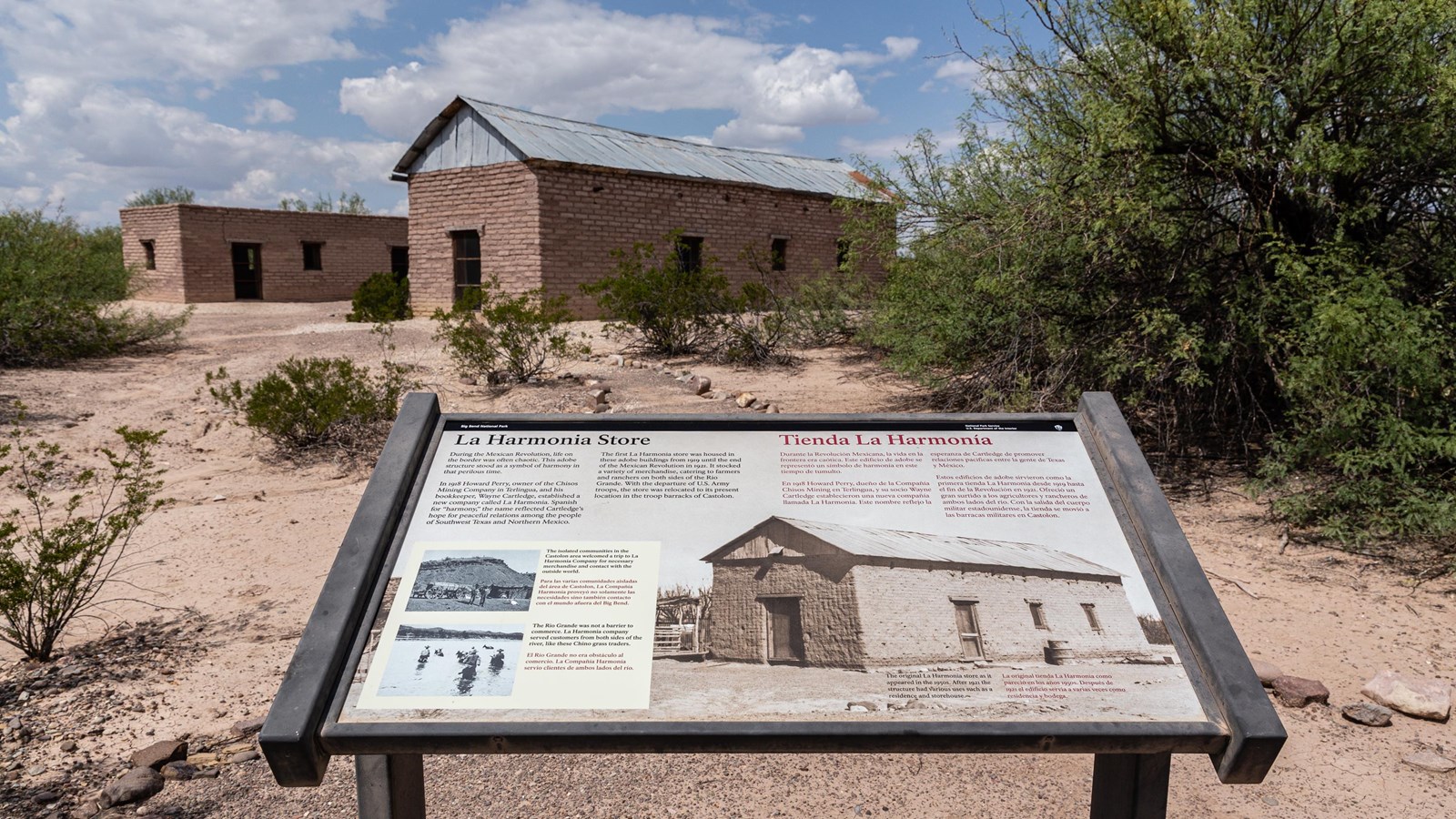Last updated: March 22, 2022
Place
Old Castolon Exhibit

NPS PHOTO/ Cathy Hoyt
Quick Facts
Location:
Along the Ross Maxwell Road in Big Bend National Park, Texas
Significance:
The Castolon Historic District represents the largest and most complex example of human history in Big Bend, where the cultures of Mexico and the United States of America met in one rural community along the border.
Designation:
U.S. National Register of Historic Places, U.S. Historic District, HABS
Amenities
2 listed
Historical/Interpretive Information/Exhibits, Parking - Auto
The land where Old Castolon exists was owned by Cipriano Hernandez, original builder of the Alvino House. In 1914, he sold the land to Clyde Buttrill, who hired James Sublett to operate the farm and store previously run by Hernandez. Sublett built the adobe buildings located here before selling the land to two Texas Rangers, Bates and Jones, in 1918. The next year they sold the land to the newly formed La Harmonia Company.
The La Harmonia Store opened in early 1919 and soon became an important part of the Castolon community, due to the integrity and common sense of Wayne Cartledge. Cartledge developed a reputation as a fair businessman who helped his neighbors, regardless of citizenship or language. Fluent in Spanish and English, he settled disputes, translated letters, provided banking services, and acted as a wholesale distributor of American-made merchandise bound for the remote villages of northern Mexico. In many ways, Wayne Cartledge seemed determined to validate La Harmonia’s name by working for peaceful and harmonious relations between the people of western Texas and northern Mexico.
The La Harmonia Store opened in early 1919 and soon became an important part of the Castolon community, due to the integrity and common sense of Wayne Cartledge. Cartledge developed a reputation as a fair businessman who helped his neighbors, regardless of citizenship or language. Fluent in Spanish and English, he settled disputes, translated letters, provided banking services, and acted as a wholesale distributor of American-made merchandise bound for the remote villages of northern Mexico. In many ways, Wayne Cartledge seemed determined to validate La Harmonia’s name by working for peaceful and harmonious relations between the people of western Texas and northern Mexico.
